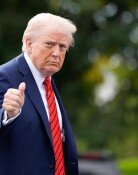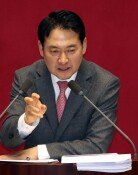[Editorial] Korea-US FTA on Shaky Ground
[Editorial] Korea-US FTA on Shaky Ground
Posted January. 15, 2009 08:34,
On whether the United States should ratify the free trade agreement with Korea, U.S. Secretary of State-designate Hillary Clinton said amendment or further negotiations will likely be necessary. Citing U.S. President-elect Barack Obamas firm objection to the agreement, Clinton backed his opinion in a written answer submitted for her confirmation hearing. She said Washington will seek renegotiation only if Seoul agrees to, but the Korean government has repeatedly ruled out renegotiation. Thus, the incoming U.S. administration is certain to put pressure on Korea.
The U.S. Democratic Party, which has the backing of auto unions, has long been against the deal. Obama branded the accord as full of flaws and unfair clauses to American automakers in May last year before winning his partys presidential nomination. He spoke of the deal throughout his campaign, often giving a misleading impression that foreign automakers, including Koreas, are to blame for the crisis in the U.S. auto industry. The American Federation of Labor and Congress of Industrial Organizations, the biggest U.S. labor group, has urged the new administration not to endorse the free trade deal unless auto-related articles are revised and Koreas labor practices are improved.
The Obama administration, however, must find the cause of the U.S. auto industrys demise not from outside but within. Why is it trying to hide the decline in consumer demand for big cars with low fuel efficiency and the weakening of the U.S. automakers finances due to increasing welfare costs for union members and their families? Who should be responsible for the dwindling sales of U.S. cars, whose performance and design are inferior to Japanese and European models?
The free trade deal was a strategic choice to beef up bilateral ties in politics, security and economy. The Obama administration must not betray its allys trust based on the excuse of supporting its auto industry, which has lost its competitive edge.
The Korean government became aware of the new U.S. government`s drive toward renegotiation six months ago, or at the very least, three months ago. Korean Foreign Minister Yu Myung-hwan reported to the National Assembly in October last year that Washington might demand revisions to auto clauses if Obama was elected president. The government urged the Assembly to take preemptive action and ratify the accord before the U.S. Congress, but now says it will handle the agreement quickly after the Obama administration takes office. The lawmakers dereliction of duty should be blamed for U.S. pressure to have the agreement revised.



![패딩을 드라이클리닝?…오리털 기름기 녹여 보온력 뚝 [알쓸톡]](https://dimg.donga.com/c/138/175/90/1/wps/NEWS/IMAGE/2025/12/22/133012676.3.jpg)



